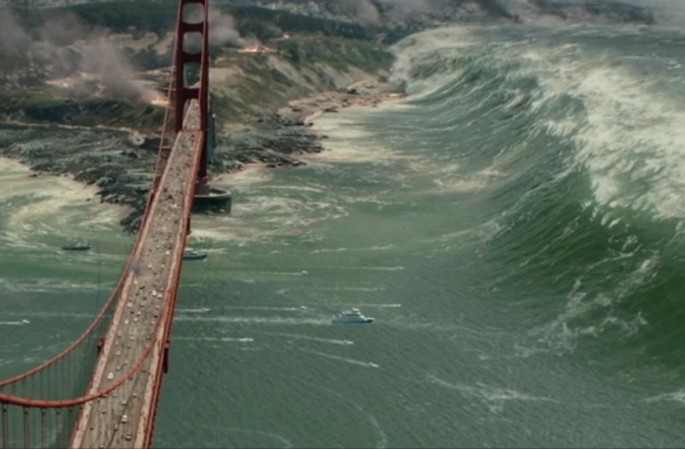Starring Dwayne "The Rock" Johnson, the "San Andreas" movie depicts a Southern California tsunami disaster that is based on actual studies. While its occurrence is likely, it would not be as catastrophic as the Hollywood film suggests, according to a timely study published by Huntington Beach geologists.
Offshore Southern California's long faults could produce 8.0-magnitude quakes and seafloor faults that could create great tsunamis within 90 miles of the coast, including Los Angeles, San Francisco and San Diego, according to Dr. Legg's paper published by Journal of Geophysical Research on May 30.
According to lead author Dr. Mark Legg of Legg Geophysicals, in case of a strong earthquake, the resulting tsunami would not wash out coastal California exactly as the movie portrayed. However, the potential hazard is still high and it has not gained the attention it needs, NBC News has learned.
Dr. Legg's team has been studying a seismic region on the seafloor called the California Continental Borderland, gathering decades of evidences that the 20-million-year-old faults have grown hazardous.
For one, the region's seafloor is a complicated network of faults, where the largest ones, the Ferrelo and Santa Cruz-Catalina Ridge faults are connected to smaller ones.
The team found evidence of vertical motion of up to 10 feet, which could produce great tsunamis. Other experts also pitched in the likelihood of the "San Andreas" tsunami.
U.S. Geological Survey seismologist Lucy Jones said that in case of a 9.1-magnitude quake in the Alaskan peninsula, the resulting tsunami would call for the evacuation of around 750,000 people in coastal California. Experts agreed that it is worthy of further studies.
Meanwhile, "San Andreas" is projected to make $47 million in the box office this weekend after earning $18.2 million on May 29.



























